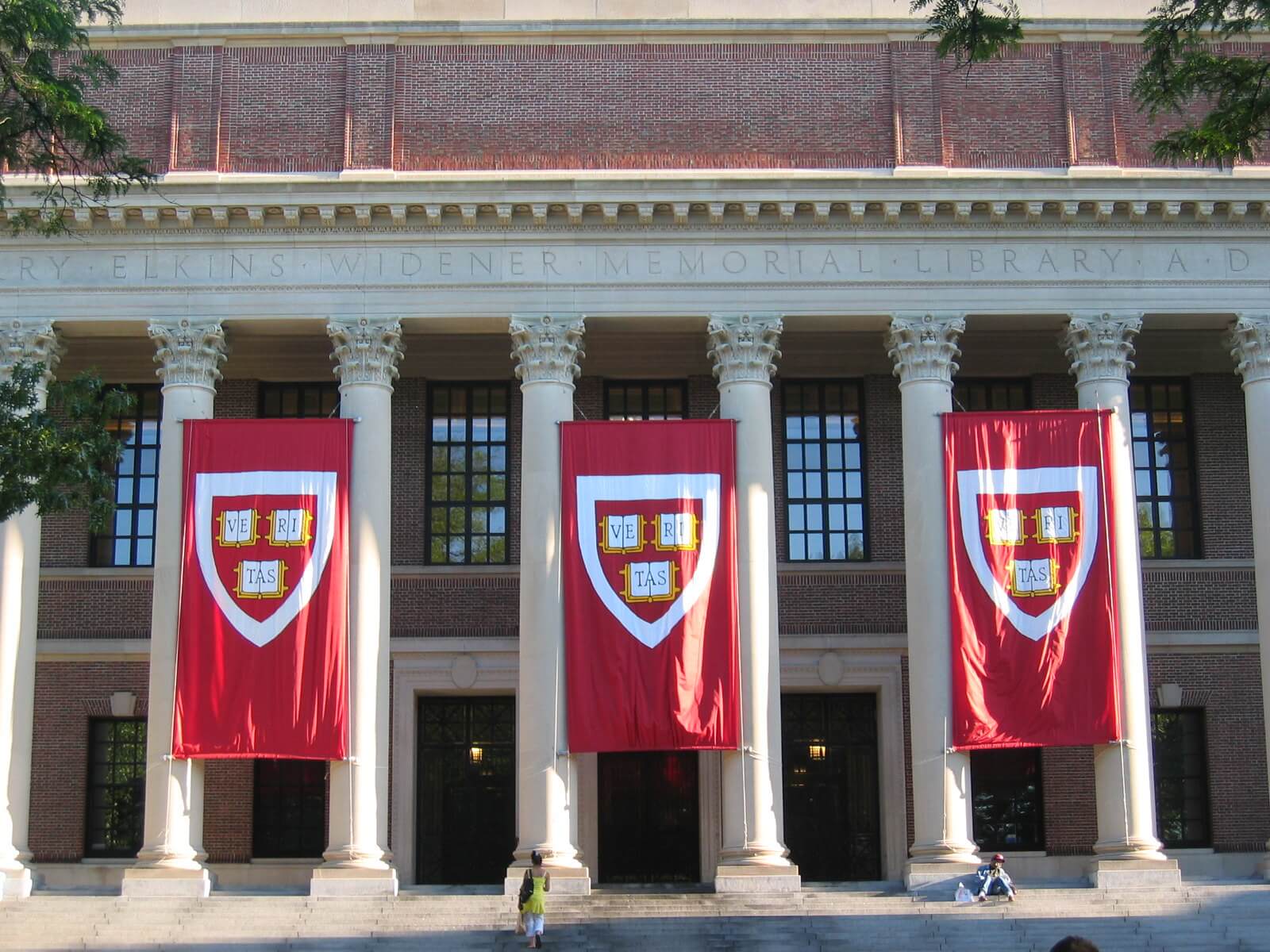The Situation: A Wrinkle in the Harvard Case
Can the courts even review the Trump administration’s suspension of entry of Harvard students?

The Situation on Thursday considered President Trump’s latest effort to keep Harvard students out of the country.
By the time I received my evening’s most interesting text message, U.S. District Judge Allison Burroughs had already issued a temporary restraining order enjoining enforcement of President Trump’s proclamation.
“You are not a bad lawyer, Wittes,” wrote my correspondent, fully aware that I am not now and never have been a lawyer at all. “Query whether [Trump] gets help from the doctrine of consular non-reviewability from Kleindienst v. Mandel, which I suppose turns on whether these justifications count as facially neutral.”
It had been a while since I had thought about Kleindienst v. Mandel, a 1972 Supreme Court case in which the government had denied entry to a Belgian Marxist who had been invited to give lectures at Stanford and elsewhere around the country. The guy had sued, but more importantly, various professors who had invited him to give lectures around the country had joined the suit, arguing that the government’s refusal to give Mandel a visa was violating their First Amendment rights to hear what he had to say.
The Supreme Court in Kleindeinst refused to consider First Amendment questions at all:
[P]lenary congressional power to make policies and rules for exclusion of aliens has long been firmly established. In the case of an alien excludable under § 212(a)(28), Congress has delegated conditional exercise of this power to the Executive. We hold that, when the Executive exercises this power negatively on the basis of a facially legitimate and bona fide reason, the courts will neither look behind the exercise of that discretion nor test it by balancing its justification against the First Amendment interests of those who seek personal communication with the applicant.
Now my correspondent is a very clever beast, and I realized that—unfortunately for Harvard—he is onto a serious argument here, one with which Harvard is going to have to contend.
The Supreme Court in Kleindeinst didn’t hold that the executive branch’s denial of Mandel’s visa survives First Amendment scrutiny; it held that it didn’t have to go through it at all, because the power of Congress to set rules for admissions of aliens outside the country is total. That’s a bit of a problem for a university arguing—in my view correctly—that the president is preventing entry of its foreign students by way of retaliating against Harvard in violation of Harvard’s First Amendment rights.
The parallels between the two cases are, the more I thought about it, unnerving. In both cases, a domestic party or parties is asserting that their First Amendment rights are being violated by an administration’s failure to let someone else into the country. If the executive’s consular decision in 1972 with respect to Mandel was unreviewable even in the face of a claim of a First Amendment violation by a bunch of people who wanted to hear Marxist lectures, why should the executive’s consular decisions with respect to hundreds or thousands of would-be Harvard students be any more reviewable today just because Harvard claims the administration is targeting it for unlawful retribution in violation of that same First Amendment?
I can think of a few answers to my correspondent’s question, but none of them is a sure thing.
The first involves a point I actually missed yesterday but that Harvard makes a lot of in its temporary restraining order brief: It’s not entirely clear the president’s proclamation meets the terms of the statute at all.
The statute, recall, allows the president to suspend entry to any “class of aliens” and leaves it to him to determine how that class is defined. I mentioned yesterday that Trump’s order is not aimed at the aliens it excludes, and that the evidence for this fact is that they can still enter the country merely by enrolling at a different university.
But this point may carry more weight than I noticed. As Harvard notes in its brief: the proclamation “does not suspend entry of a class of aliens” at all. If “[t]he same students who will be affected by the Proclamation can still enter the United States—just not while studying at Harvard,” that fact “undermine[s] any national security claim related to the entry of these individuals.” It’s a very good point.
And by this same logic, Kleindienst might not preclude review of the proclamation, because the proclamation is not a valid exercise of Congress’s plenary power to control the borders but is just an ultra vires presidential action taken against Harvard in violation of the First Amendment.
Harvard might also argue that it is not actually asking for review of any consular action. After all, the university here is not challenging the denial of entry to the United State of any specific student or group of students—none of whom is actually prevented from entering the country anyway. The university, rather, is challenging a policy of denying entry to students in general if they mean to attend Harvard. It’s a set of instructions for future consular actions, not the actions themselves. Thus, the university might plausibly claim that Kleindeinst does not apply because what is being challenged is not any consular decision that impairs its First Amendment rights but a policy of using entry to the country to impair its First Amendment rights. And while the specific consular decisions may be insulated from review, the policy is not.
A third possible avenue for Harvard is the one my correspondent hinted at in his text when he said that he supposes the question “turns on whether these justifications count as facially neutral.” Note that Kleindeinst does not insulate all consular decisions from review. It shields only those where the executive acts “on the basis of a facially legitimate and bona fide reason.”
And facial legitimacy is a funny thing. The proclamation, as I mentioned yesterday, offers four bases for the action against Harvard:
- That Harvard has refused DHS data it seeks on foreign students and their misbehavior at the institution.
- That Harvard “has also developed extensive entanglements with foreign countries, including our adversaries.”
- That Harvard violates students’ civil rights.
- And that “Harvard admits students from non-egalitarian nations.”
Are these “facially valid” reasons for denying entry to an individual alien who means to come to the United States to attend Harvard? It kind of depends on your definition of facial validity. But I think Harvard would have a decent argument that these are absurd bases, both individually and collectively.
The reason boils down, again, to the fact that the proclamation doesn’t actually keep anyone out of the country. It merely keeps people out to the extent they want to attend Harvard. So because Harvard does the above-listed things, the administration is saying, we are going to prevent students from entering the country to go there but not prevent those same students from entering the country for other purposes.
Now go back to the language of the statute, which begins, “Whenever the President finds that the entry of any aliens or of any class of aliens into the United States would be detrimental to the interests of the United States.” How can facially valid reasons for keeping a class of aliens out of the country lead to not keeping out those aliens if their presence in the country would really be “detrimental to the interests of the United States”? And if it wouldn’t be detrimental, then it almost by definition can’t be a facially legitimate reason.
The only way this order makes sense is if it is about retaliating against Harvard. And that, under the First Amendment, is not a facially legitimate purpose—for anything.
The administration has two strong arrows in its quiver in this fight—which is two more than it has in its actions against, say, law firms. It has a statute that gives it extraordinary power. And it has a Supreme Court decision that says something rather close to that its exercise of authority is beyond any court’s power to review.
That Harvard should win anyway should give you, given all of this, a sense of just how lawless the administration’s behavior really is.
The Situation continues tomorrow.





